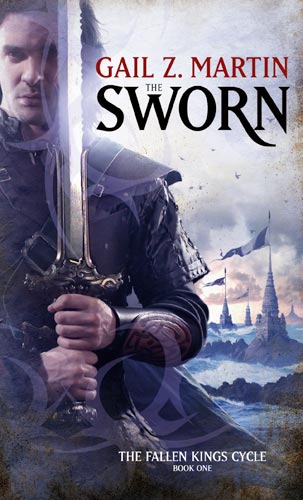Last week I mentioned that it was nice to see the swell of books dealing with parapsychological abilities (clairvoyance, psychics, etc.). Another trend I find exciting is the more nuanced way authors are presenting Wicca, Magick and Paganism.
There’s been a definite evolution in the way the Craft is described, and the care taken to differentiate Wicca and White Witchcraft and Magick from the negative stereotypes. I’m pleased to see that the Craft is presented in a positive, balanced way that clearly differentiates it from the bad spin haters have given it over the centuries.
With the growth in the number of people who are reexamining the Old Ways, whether that is the resurgence of Norse practice to the wide range of Druids, goddess-worshippers and others, it’s important for authors to get the details right. The wealth of excellent handbooks available from publishers like Llewellyn make it inexcusable for an author to “just make stuff up” instead of being grounded in a firm understanding of how magical systems and ritual works.
Getting it right doesn’t require that the author be a practitioner; however, it does require approaching belief systems with enough respect to be accurate so as not to perpetuate misinformation. If you know practitioners well enough to be able to ask questions and confirm interpretation, all the better.
Dealing with any religion in fiction is always tricky, especially if an author who is not a practitioner is trying to describe someone else’s beliefs. When that’s the case, it’s especially important to tread carefully, research, and try hard to put yourself in the mindset and worldview of a practitioner even if it’s just for the duration of the writing project. Make sure you understand the role of ritual and ceremony, especially if your own tradition does not value those elements.
It’s easy to spot writers who have very little experience with religious traditions other than their own. (If an alien race that has never had contact with Earth has a religion where everyone goes to a white, pointy-roofed building on one day of the week and sit in rows to listen to someone up on the stage, you’ve just described Presbyterians in space, not an alien religion.)












